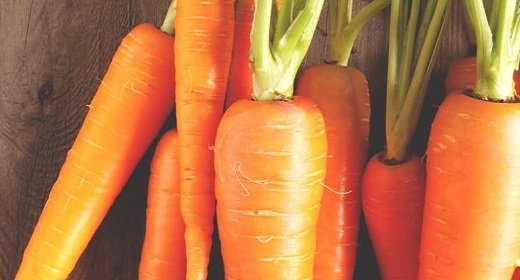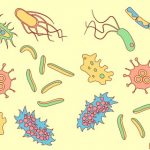by Ocean Robbins: In retrospect, we probably shouldn’t be surprised that food scientists are going gaga over peas.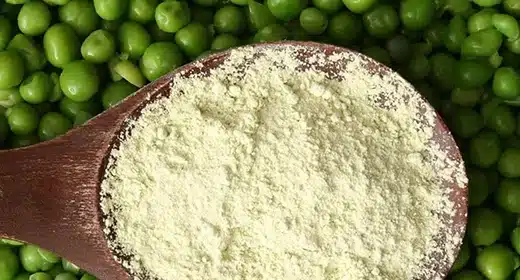
We are proud to announce a new partnership with John and Ocean Robbins and the Food Revolution to bring our readers Summits, Seminars and Masterclasses on health, nutrition and Earth-Conscious living.
Your Chance to Attend From Food to Freedom Film for FREE!
The Food Revolution Premiere of From Food to Freedom Film
While not that many folks these days think of peas as culinary superstars (just the name of one of Britain’s classic sides, “mushy peas,” is enough to cause some people to lose their appetite), these unassuming legumes have been at the forefront of botanical research for at least a century and a half.
It started with Austrian clergyman and scientist Gregor Mendel, the acknowledged “father of genetics” (side note: isn’t it weird that historians of science didn’t also identify a mother, since that’s kind of how genetics works?), who unraveled many of the secrets of genes and inherited characteristics. His work, which formed the basis for most of our modern understanding of genetics, was carried out on pea plants.
And these days, scientists are once again turning to peas with great interest, this time in attempts to solve some of humanity’s most pressing problems: climate chaos, chronic disease, and malnutrition. And so far, the humble pea is proving more than capable of delivering.
At the center of these efforts is pea protein, which stands poised to replace animal-based protein in multiple industries. Major brands like Beyond Meat have made huge financial and technological bets on their ability to use plant-based protein to create meat analogues that can fool even the most devout meat-lover.
But unlike that steaming bowl of green mushy peas, pea protein is a factory-produced substance, not a whole food. And we hear often that we should be eating food that comes from plants (as in, plant foods), not food manufactured in plants (as in, factories). So what’s the truth here? Is pea protein healthy? Can it truly provide adequate protein or replace animal protein? And what’s preferable: pea protein powder or isolates, or whole food sources?
The Rise of Pea Protein
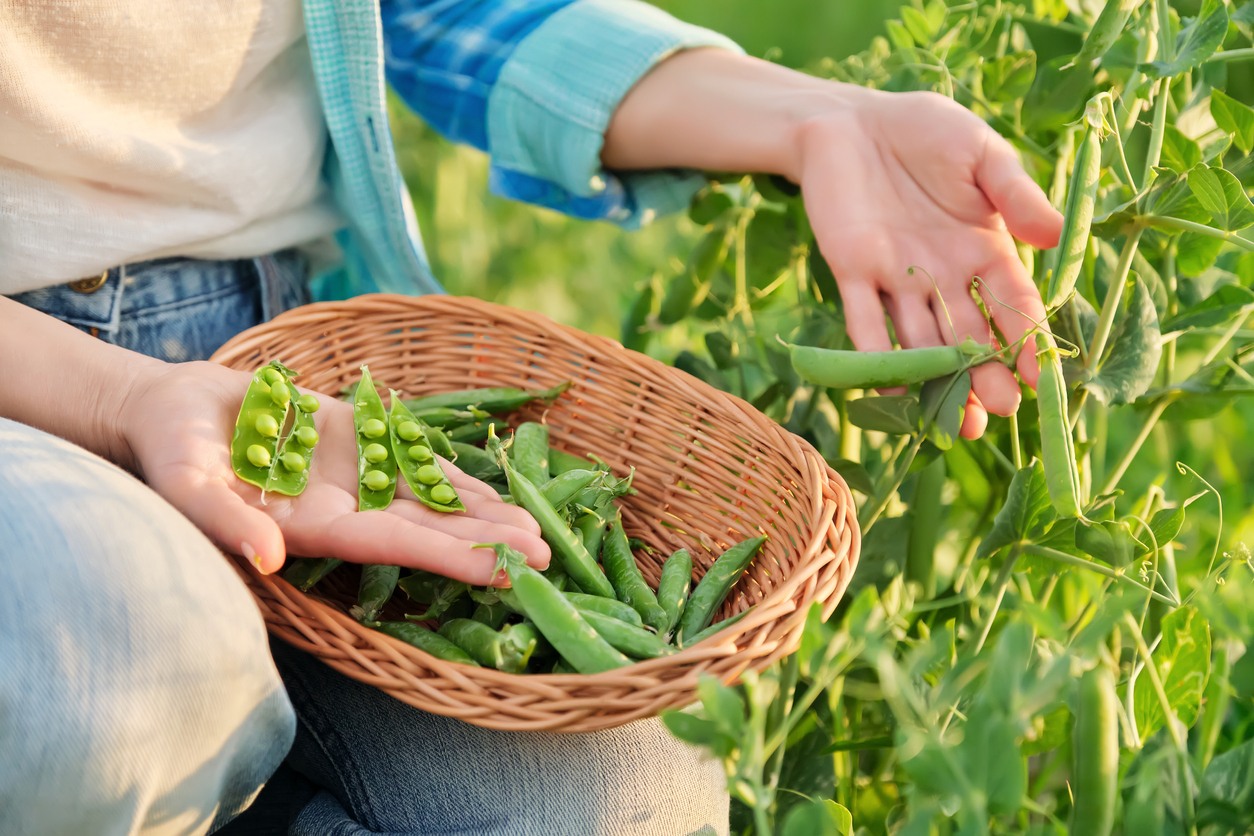
Pea protein is having its moment; it’s now one of the most popular protein options in the plant-based world. And for several good reasons: It’s highly bioavailable, it offers great nutritional value, it greatly reduces land use and greenhouse gas emissions compared to animal-based protein production, it’s less expensive to produce, and it can provide significant health benefits.
Of course, not everyone needs an additional protein source outside of the food they eat. While vegans and vegetarians are far too familiar with the question, “But where do you get your protein?” analysis of common foods shows that if you’re consuming enough calories from plant-based foods, you’re almost certainly consuming enough protein as well.
While many people get plenty of protein — often, far too much — it’s also true that protein needs vary. Some people, like the elderly or those with particular conditions, may need an additional or alternative protein source. And while soy has traditionally been that alternative — think tofu, tempeh, soy-based hot dogs and burgers, and textured vegetable protein (TVP) — many people are allergic to soy or otherwise want to limit their consumption of it.
So is it a good idea to include pea protein in your diet? It’s time to take a PEA-k at this lovely little legume.
What Is Pea Protein?
Pea protein comes from yellow peas, or Pisum sativum, grown in Europe and North America. The creation of pea protein happens by separating the protein from the pea starch and fiber in a factory. As a result, it’s not a whole food.
Processors can output two main types of protein: pea protein isolate and textured pea protein. The isolate, with a protein content of 85–90%, is used primarily in protein powders.
Textured pea protein serves mainly as a plant-based meat alternative. It’s versatile and can take the form of fibers, shreds, chunks, bits, granules, slices, or similar food forms. Since heat application occurs during processing, its protein content is lower than that of pea protein isolate (typically around 65–80%).
Pea Protein vs Animal Protein
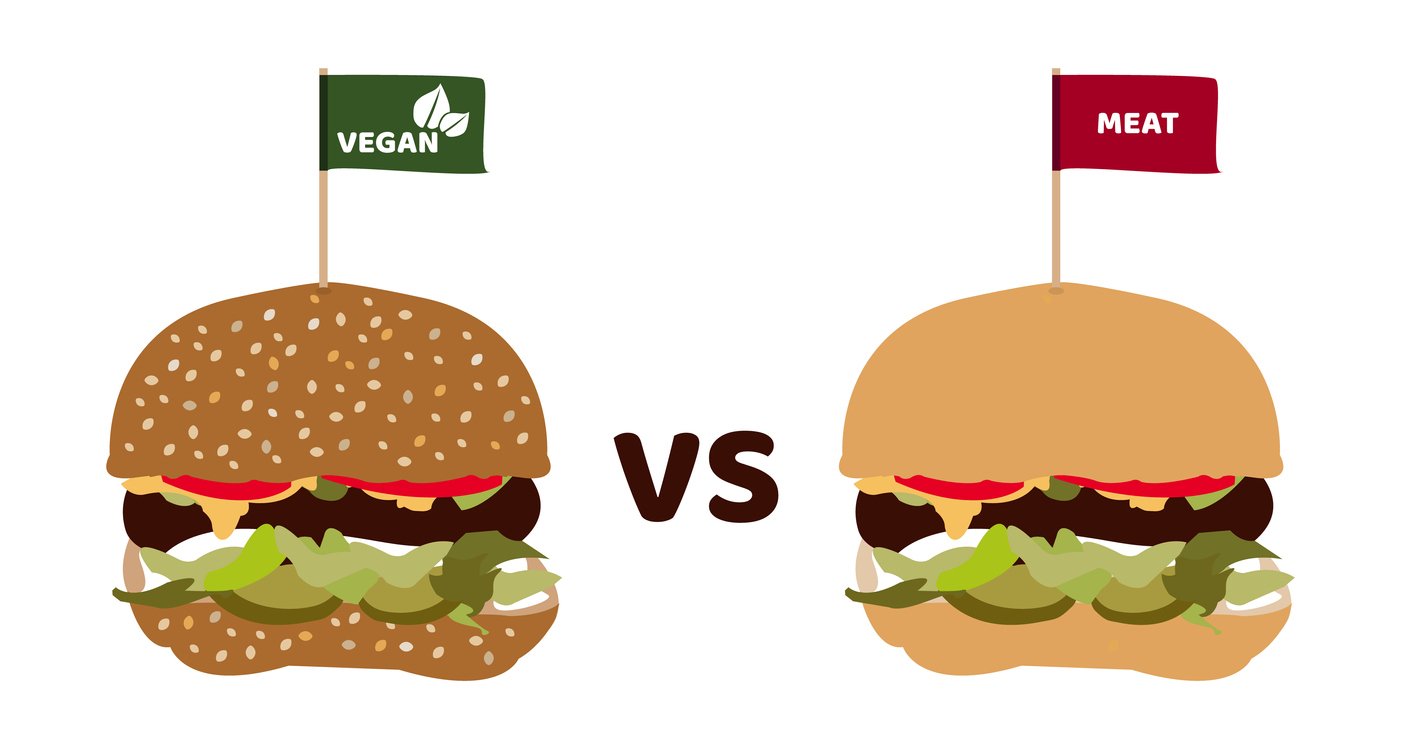
So what’s the deal with pea protein as an alternative to and potential replacement for animal protein? As plant-based meat has improved meteorically in culinary quality in the past decade, the animal agriculture industry has been funding studies and pumping out press releases decrying this “artificial” product as vastly inferior to “natural” meat. But what’s the truth beyond the hype?
Are Pea and Animal Proteins Nutritionally Similar?
There are longstanding concerns that plant proteins are inferior to animal proteins on three counts. Let’s take a look at them.
“Incomplete Proteins”
First, there’s the assumption that plant-based proteins are “incomplete.” That is, while animal protein contains all 20 amino acids that make up the human body (which makes sense because, while we’re encouraged to forget the fact, we ourselves are animals, too), plants were thought to provide some but not all of the 20. And while humans can synthesize 11 of them, that leaves 9 “essential” amino acids that we must get from our diets.
That belief led to the practice of “protein combining” among vegetarians in the 1970s, making meals of so-called “complementary proteins” such as rice and beans, whole grain bread and peanut butter, hummus (chickpeas and tahini), and so on. (To be fair, these are all amazing meals that do provide a lot of nutritional benefits; it’s just not necessary to consume these various plant foods simultaneously to get them.)
While long ago debunked, the concept of complementary proteins reinforced the idea in the popular imagination that consuming a vegetarian diet was inviting protein deficiency. The truth is, all plants do contain all 20 amino acids; the only potential issue is the ratios of specific ones. Because your body makes complex proteins from all 20, if your diet is low in a particular amino acid, it becomes the limiting factor in protein synthesis.
Grains, for example, tend to be low in lysine. Other amino acids of concern include methionine, isoleucine, threonine, and tryptophan. But a varied plant-based diet can provide adequate sources of all of these.
In other words, eating a variety of foods is important. Combining specific foods in any given meal is not.
And, it turns out, pea protein has a very well-balanced amino acid profile, with highly bioavailable forms of all the amino acids. It’s high in lysine, which makes it a perfect complement to a grain-strong diet. In fact, pea protein is one of the plant-based proteins that meet the amino acid requirements of the alphabet soup of acronyms that is the WHO, FAO, and UNU.
What About Building Muscle?
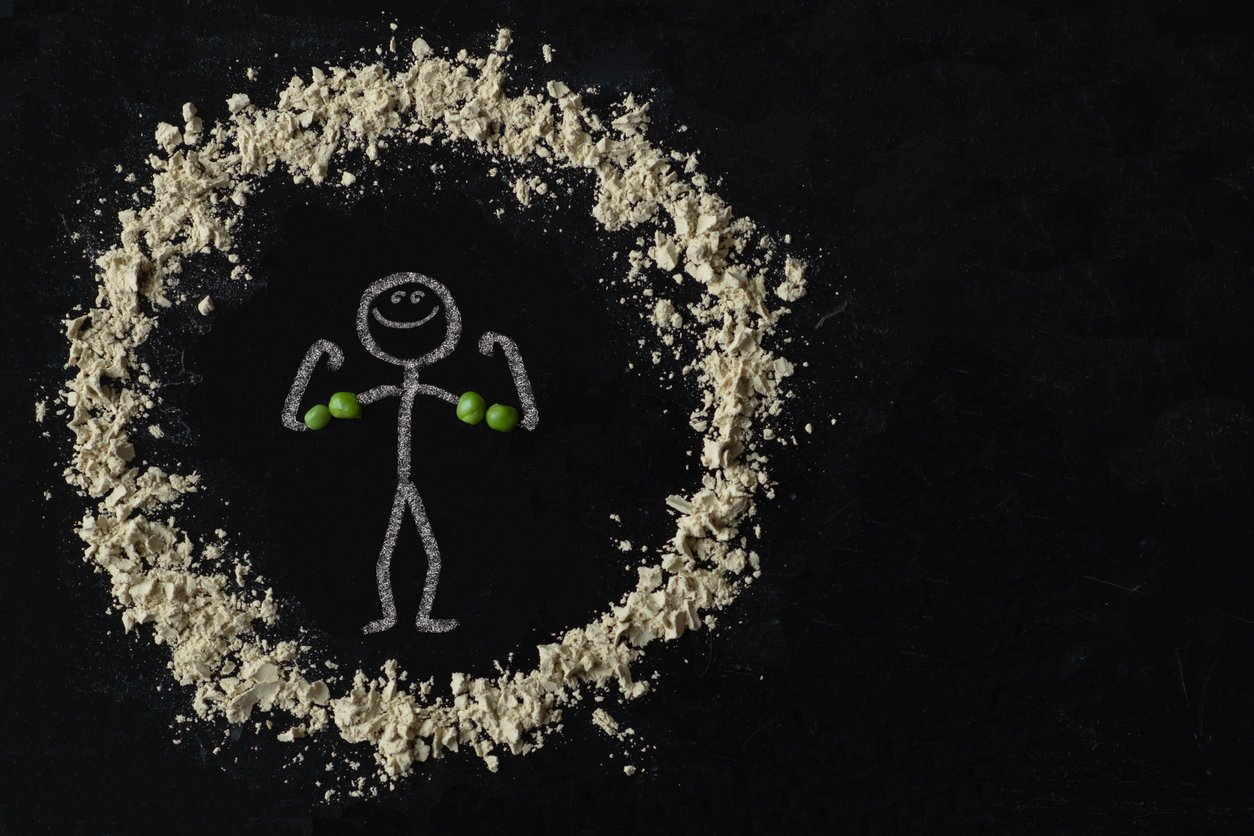
Some people believe that whey protein and other forms of animal protein are necessary to build muscle. And there’s no doubt that many bodybuilders consume large amounts of animal-based protein. But do they need to?
At the time of writing, many studies have shown that pea protein produces similar results to an animal-based protein when it comes to athletic performance and fitness results. This finding validates the lived experience of many plant-based athletes as well.
How does pea protein compare to whey protein? A 2015 study looked at a muscle-building interventionamong young men ages 18–35. One experimental group took pea protein, while the second used whey protein. To keep things clear, there was a control group that received a placebo. The pea group was the only one with significant increases in muscle size — beating both the whey protein group and the placebo.
More Bioavailable Amino Acids?
It’s widely believed that, because animal tissue is so similar to human tissue, amino acids from animal protein are absorbed more fully by the body, and therefore are more bioavailable. Of course, by this logic, the healthiest human diet would be cannibalism (at least from the perspective of the diner, if not the dinner). But is it true?
It turns out that animal protein is typically about 10–20% more readily absorbed than plant protein, generally speaking. But this may not be the advantage many people assume it is. Because there are some compelling reasons to favor plant protein over animal protein sources — as we’re about to see.
Is Pea Protein Healthier?
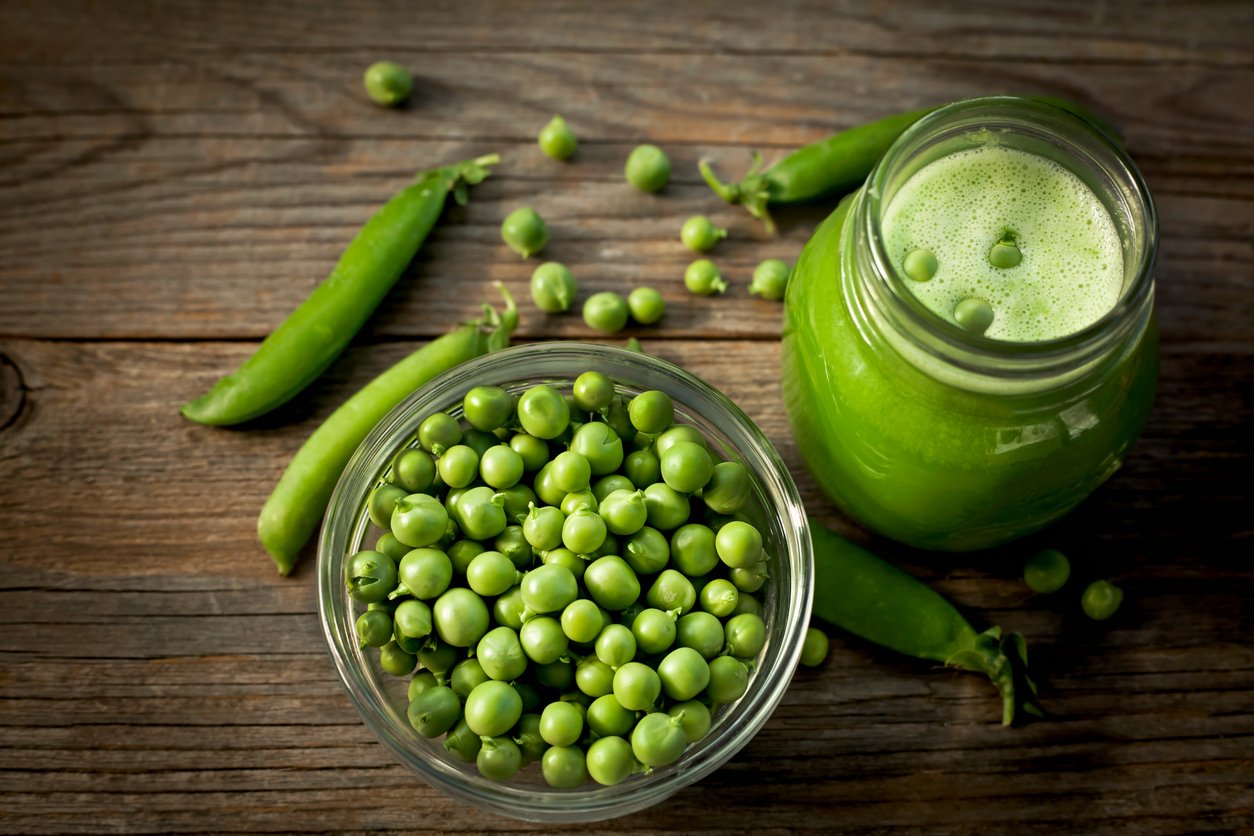
Well, yes, for a bunch of reasons.
Avoid Harmful Dietary Compounds
For one thing, pea protein doesn’t form harmful compounds in your digestive system. Meat — in particular, red meat — promotes the formation of TMAO, a nasty compound associated with the development of multiple inflammatory conditions. Animal proteins are also high in the accurately acronym-ed “AGEs” — Advanced Glycation End-products — which form during the cooking process when animal proteins are in proximity to sugars and fats at high heat. AGEs can lead to type 2 diabetes and heart disease, among other maladies.
Animal protein also comes with heme iron, which is much more easily absorbed into the body than the plant-based, nonheme variety. While this sounds like a good thing, it often isn’t. Heme iron intake is associated with the development of several cancers, including colorectal, pancreatic, and lung cancer, as well as type 2 diabetes and heart disease.
Pea protein, and plant proteins, in general, may also be better for heart health and longevity than animal proteins. As a result, you may be able to reduce your risk of chronic disease by eating pea protein instead of whey or other animal proteins.
Pea Protein and Gut Health
Second, pea protein is better for gut health and weight management than whey protein. For example, it can support the growth of two types of beneficial gut bacteria: Lactobacilli and Bifidobacteria. In several studies, people who consumed pea protein felt very full after eating, which tends to discourage overeating and subsequent weight gain. It also contributed to reducing the blood sugar spike that occurs after eating.
And pea protein is also being studied as a tool in helping to prevent irritable bowel disease, with early successes reported in mouse trials.
A Major Allergen Alternative

Pea protein also shows promise as a supplemental protein for people with two common food allergies: dairy and soy.
Pea protein isn’t officially hypoallergenic, as there are some people who suffer from pea allergies. Nevertheless, it can be an alternative protein source for those allergic to pea’s legume cousins: soy and peanuts. Its advantage may be short-lived, however, as increased exposure to a protein often leads to increased sensitivity among a population.
But it beats soy in another respect as well: most of the world’s soy is now bio-engineered (BE; aka “GMO”). It’s true that scientists have been tinkering with pea plant genes since old Gregor Mendel in the 19th century, but so far, it’s been resistant to effective modification using modern gene-splicing technology. Research on a strain of BE peas was discontinued in Australia in the early 2000s after scientists discovered that it caused an immune response in mice. For anyone who prefers to be non-GMO, pea beats soy unless the soy is organic.
Is Pea Protein More Sustainable?
In addition to being a potential boon to the health of individuals, pea protein gaining ground on animal protein can also lead to giant environmental steps forward. Let’s just look at one aspect of pea protein’s environmental impact: greenhouse gas (GHG) emissions.
Right now, animal agriculture is responsible for a large share of the world’s GHG output. Through methane released via cow “eructations” (there’s a less technical word for that which my kids were very fond of around age 3), huge amounts of carbon released through deforestation to make room for grazing land, and highly inefficient conversion of animal feed into animal protein, animal agriculture is a major driver of climate chaos.
Livestock provides only 18% of the food calories eaten by humans and 37% of the protein, yet it uses over 83% of all farmland. Even the lowest-impact beef is responsible for six times more greenhouse gases than plant-based proteins like peas. And in terms of land requirements, it’s far worse: It takes 36 times more land to grow the same amount of protein from beef as it does from plants. It’s clear that beef farming is a huge waste of resources, almost like buying a new iPhone and then smashing it just to get your hands on the roughly two bucks worth of gold it contains.
Peas, in particular, have a tiny carbon footprint when compared to any type of animal protein. One hundred grams of protein produced from peas emits 0.4 kilograms of carbon dioxide equivalents (CO2eq), while the same amount of protein from beef creates 35 kilograms of CO2eq — nearly 90 times as much! Peas also have a massively smaller water footprint, requiring only 71 gallons of water per pound compared to beef’s 1,847 gallons per pound.
And of course, peas also don’t contribute to animal cruelty.
Pea Protein Dangers and Downsides to Consider

Things are not all rainbows and unicorns in pea protein land, however. There are at least two downsides to the heavy consumption of pea protein.
Pea Protein Heavy Metals
The first is that many plant protein powders may contain contaminants and toxins, including heavy metals and other known carcinogens. These typically include things like cadmium, lead, arsenic, and BPA. This fact isn’t limited to pea protein but can occur across the board in food. Plants absorb lots of things from the soil, including heavy metals. That’s why their levels of contamination can be higher than those found in whey-based proteins.
One way to address this is to visit a pea protein manufacturer’s website and look for information about what is actually in their product. Specifically, look for any third-party testing for heavy metals and toxins — and certification they may have received.
Is Pea Protein Processed?
We’ve seen that pea protein is superior in many respects to animal protein sources. But it’s still a highly processed food. Processing involves taking things out (like starch, fiber, and water). And it often involves putting other things in, too.
Pea protein isolate, textured pea protein, and the products made from them may also contain natural and artificial flavors, fillers, preservatives, refined oils, and sugar.
So while plant-based protein powders, meats, and dairy products can be helpful for transitioning to a plant-based diet, it’s still often preferable to get the bulk of your protein from whole food sources.Whether you choose to include pea protein in your diet is up to you. But instead of eating pea protein, you could eat actual peas and reap many of the same benefits plus more that come with the fiber, vitamins, and minerals that your body will also appreciate.
Even if mushy peas aren’t your thing, there’s split pea soup, stir-fries with peas, peas and carrots, pasta and peas, fresh pea salad, and even green pea hummus.
You can find out more about peas, along with three yummy recipes to get you started, in our comprehensive article on peas. And remember — peas are just one of the awesome foods in the legume family.
In fact (and not many people know this), beans were John Lennon’s favorite vegetable… up until he decided to give peas a chance.
Giving Peas a Chance
Pea protein is a popular plant-based protein, often used as an alternative to whey protein powders or as an ingredient in meat substitutes. Although it was once thought that pea protein was inferior to animal protein, it turns out that it’s plenty nutritious and effective for building muscle, and that it may be better for your health since it doesn’t contribute to the formation of TMAO and AGEs. It’s also produced more sustainably and has a much lower carbon and water footprint than animal proteins.
Although there are some risks to consider when consuming pea protein products, overall they can offer a good source of protein for those who want or need extra protein in their diets. But for most people, it’s probably not necessary to consume pea protein. Getting your protein from whole plant sources is often healthier, tastier, and more cost-effective.
We are proud to announce a new partnership with John and Ocean Robbins and the Food Revolution to bring our readers Summits, Seminars and Masterclasses on health, nutrition and Earth-Conscious living.
Your Chance to Attend From Food to Freedom Film for FREE!











